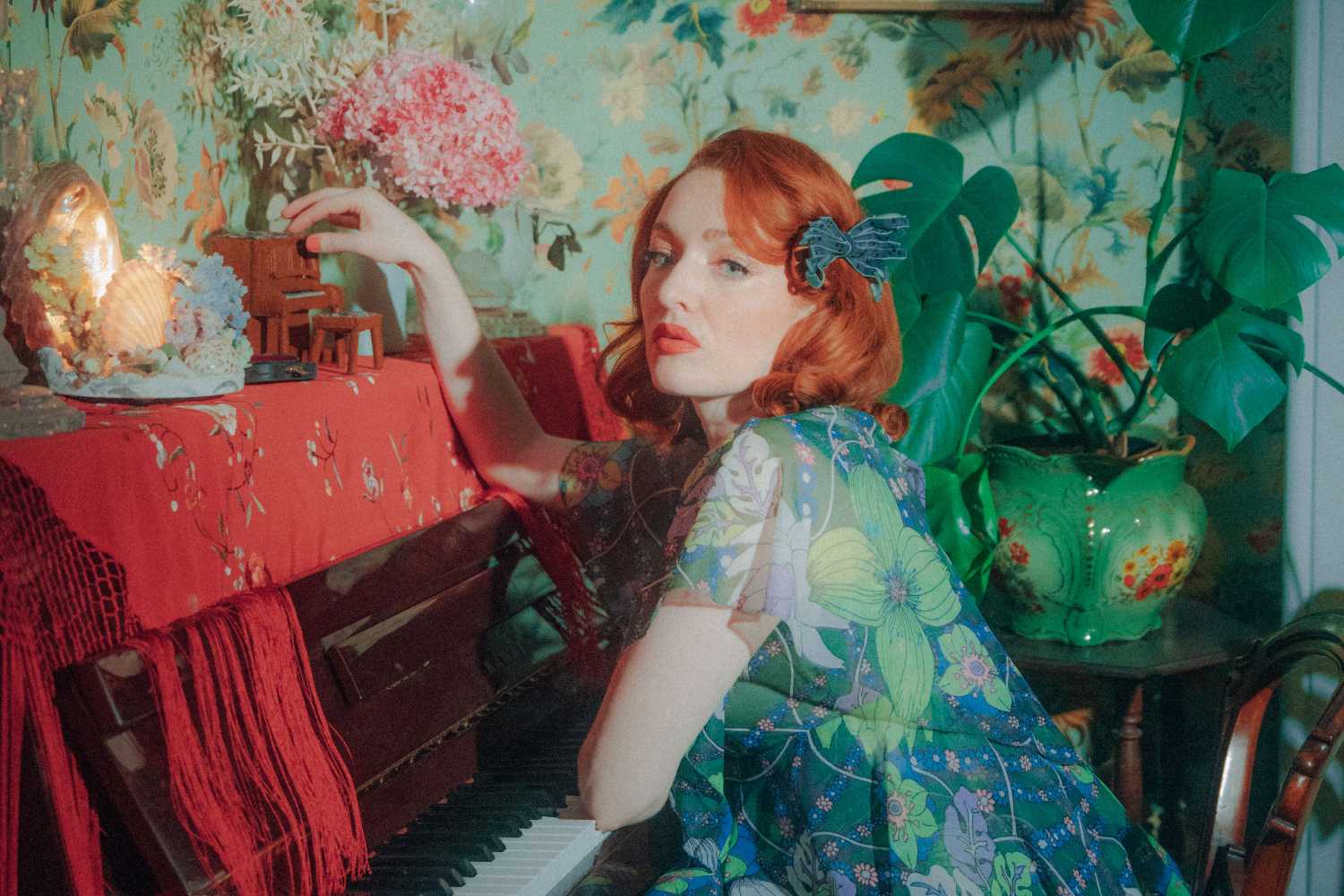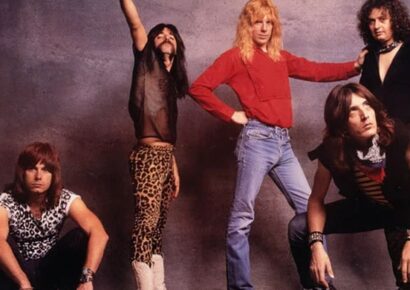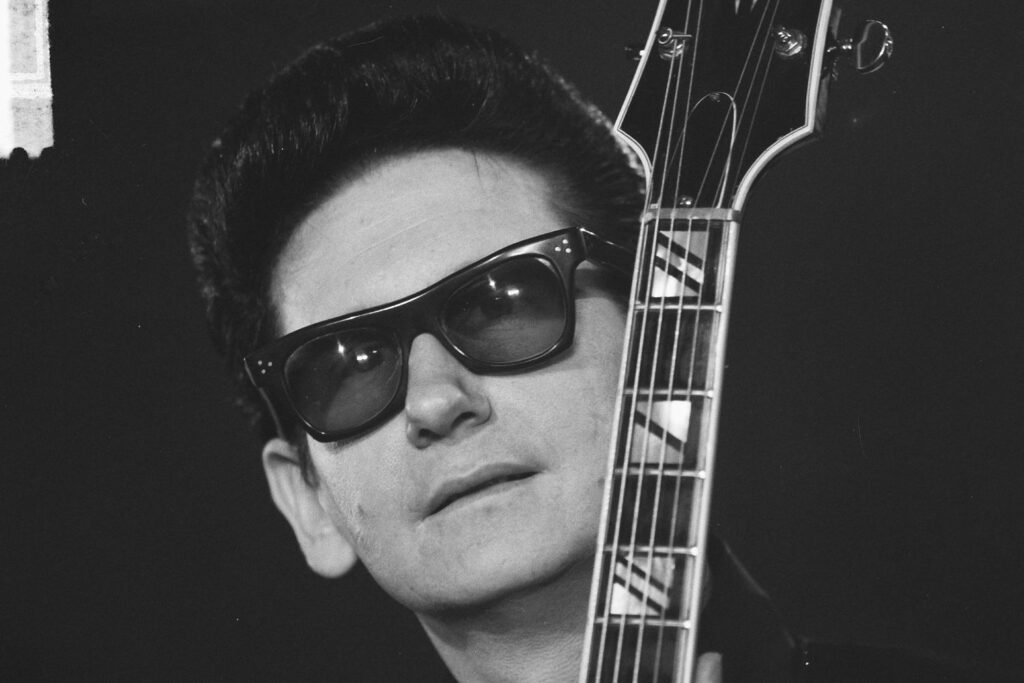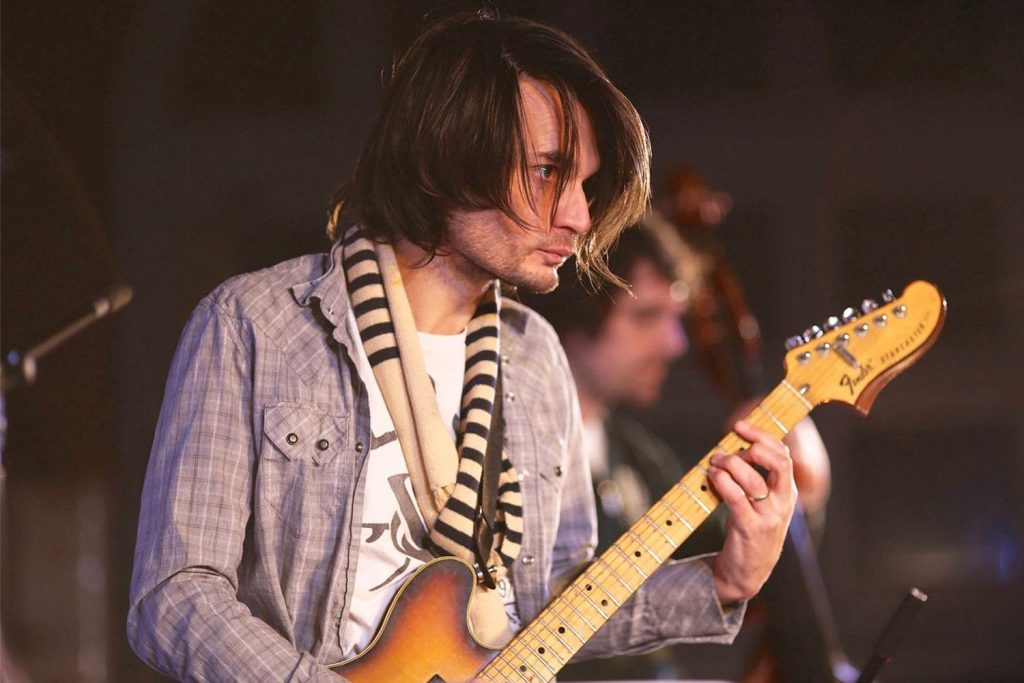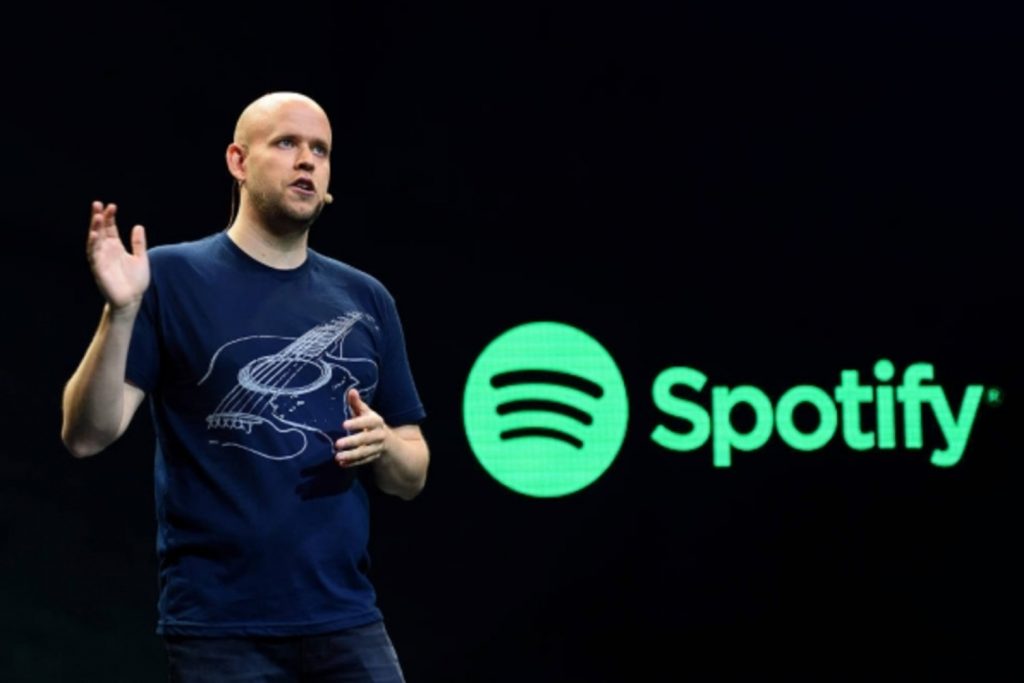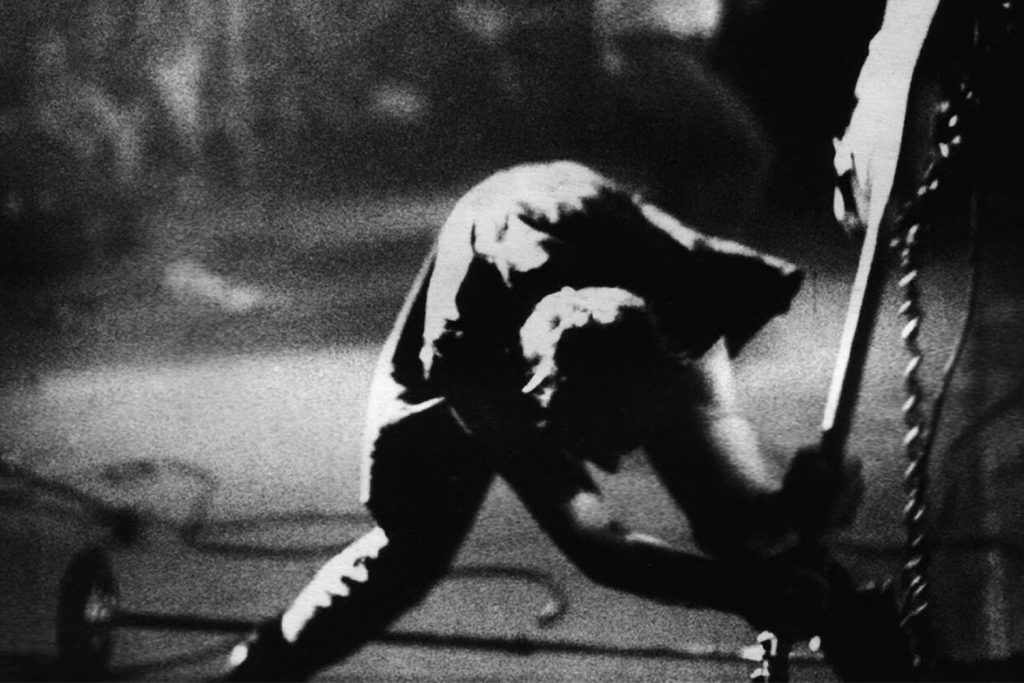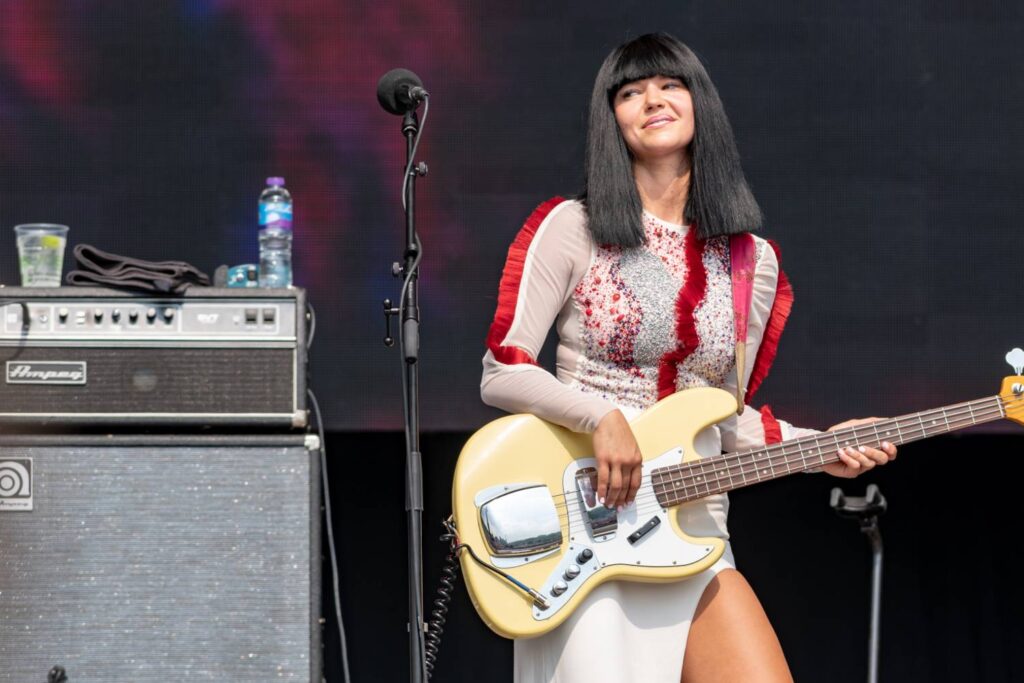Full of Moon is ARIA-winning singer-songwriter & multi-instrumentalist Georgia Mooney's debut album, having had great success in All Our Exes Live in Texas.
Georgia Mooney approached Grammy Award-winning producer Noah Georgeson in 2019, but travel plans to record in LA in 2020 were squashed early that year.
Forcing her hand, Mooney went on to contact a who’s who of her favourite session musicians, including keys player Marcus Hamblett (Laura Marling, Villagers), ultimately leading to Full of Moon, which is being lunched at the Brunswick Ballroom tomorrow night.
Ahead of the release we spoke to Georgia and Marcus about the reality of making the album in isolation, and how this all ultimately affected the outcome for the better!
Read all the latest features, columns and more here.
Georgia, congratulations on the release of Full of Moon! We understand this album has been a few years in the making. How did it start?
Thank you! It really has. Since 2014 I’ve been a member of All Our Exes Live in Texas and have had a pretty busy touring schedule, but making this album has always been in the back of my mind. The songs were written in little breaks between tours, over all those years. Because we played a lot internationally, the songs came together on little solo writing trips all over the place – Florence, London, the west coast of Ireland, the Greek island of Skopelos, the Blue Mountains, my parents’ basement. They’re a collection of songs from different times and places, and because of that I like to think of the album as a book of short stories. But putting them all together, and arranging them as we did, there are unifying themes. It’s an album that is quite romantic and cinematic, examining our longing to connect to one another.
Marcus, how did you get involved?
Georgia and I met at Reeperbahn Festival in Hamburg after a mutual friend suggested we might get along. We did! So we met up back in England, discussed the songs and Georgia’s production ideas and made plans to record together. Unfortunately the universe had other plans, a virus infected the whole world, her big island and my tiny island were cut off from the rest of the world and we didn’t see each other for a couple of years, but we did manage to make the album! I’ve actually worked with a lot of Australian artists: Olympia, Sarah Blasko, MF Tomlinson, Laurence Pike, Juanita Stein and more. All incredible artists – there must be something in the water over there (sharks maybe?)
Georgia – what were your initial thoughts when the prospect of travel ended? Was there ever a doubt in your mind whether the album would happen or not?
It was such a strange time, I’m sure no-one needs reminding how it felt like everything was in doubt! I was in early pre-production chats with my LA-based producer Noah Georgeson, and we’d booked studio time in San Francisco for May 2020, so it really was in the thick of it all, and it certainly delayed things immediately for a good few months. But I was so grateful that Noah was up for pushing on and making the record remotely.
Neither of us had done that before so it required a bit of brainstorming. It’s funny, in the end I think I prefer the way we did it to the way we were going to. I was able to ask musicians who were based all around the world and who I’d never be able to assemble together in a studio – like Marcus! We also suddenly had the gift of time. I could say to each musician: “Here’s the song, here are some ideas, now feel free to have a play in your own time.”
It’s so different to the time pressure of a studio. It also allowed each musician the privacy to experiment and come up with the sort of creative parts we might not otherwise have. I think the result is something quite special and unique, and perhaps tinged with extra romance and longing because of that distance and uncertainty.
Marcus – did you work on this album remotely? How was that experience? How did this workflow compare to other session gigs you’ve done?
We didn’t really ‘hang out’ online via Zoom or AudioMovers, but we communicated regularly via email and WhatsApp. It was mostly a case of me chipping away at my parts alone and sending bounces over to Georgia for her thoughts. We established a sonic palette and a list of reference artists so we knew we were on the same page, I don’t remember Georgia rejecting any of my ideas. I tend to just create and send a bit more than is required and not be precious about parts being edited or removed. In the past I’ve collaborated with other musicians via Mixim which syncs Logic projects and worked quite well but sometimes did get into a complicated mess that took a while to untangle, I’m not sure the sync side of it was worth the effort in that particular instance but it’s exciting how quickly the technology is improving.
How did you feel working remotely as a session musician affected the outcome?
To be honest, I love working together with other musicians in a studio, but I also really love working on my own. The feeling and the results are different. I do a lot of brass arranging and recording from home and it allows me a lot more time to really get to the heart of a song and do what’s best for it, by taking my time and not feeling the pressure of wasting other people’s.
If I get to the point where I’ve listened and then played along with a song so many times that it’s basically just looping in my head, that’s normally when I write my best parts, often when I step away from the instrument for a break something will appear in my head over the looping song. Also brass arrangements generally require lots of parts and harmony which can sometimes be boring for other people to sit in the studio while you piece it all together. So it works well for me!
Generally for guitar, bass and synths I suppose I prefer the immediate feedback of working together with the artist, especially if we can record multiple musicians at the same time. The excitement of being in a studio that isn’t in my house also sometimes inspires new ideas, especially if they have some synth or FX pedal or something I’ve not used before.
Georgia, what were your expectations for Marcus and the other session musician’s input? Did you have written parts for them or did you expect players to add a little of their own flair?
The beautiful thing about working remotely, particularly during that period, was that I could reach out to my favourite musicians all over the world, and they all happened to be free! I always like to work with musicians whose musicality and creative input I really value, rather than being too directive. I might have an idea in mind, but someone who knows that instrument like the back of their hand is always going to come up with a better idea than me I think!
At the risk of making Marcus feel deeply uncomfortable, I think he is the most wonderfully creative session musician I know. It’s always exciting giving Marcus a song, cause I don’t know what I will get back and it is inevitably surprising, unique, and full of rich colours and atmospheres! I like collaborating at the arranging/recording stage of song-making. I am quite private and solitary when it comes to writing the melody, chords and lyrics, but I love inviting other ideas at the production stage. Recording remotely, you have to think a little more carefully about the order in which you track things. Marcus was coming in fairly early, generally speaking, so often I was just sending him my dulcimer or piano part, a guide lead vocal, and a load of guide backing vocals. Occasionally the songs also had drums and bass. I would then send a rambling and waffly description of the mood I was after, and a few references, and leave him to it. I think what Marcus was saying about having time to loop the song in his head and really dig into it was quite valuable on this record, particularly as most of my songs have arguably too many chords. In fact one song, War Romance, we have described as “just a list of all the chords there are.”
Georgia – we understand you used an array of instruments like mandolin, trombone, trumpet, dulcimer, omnichord, harmonium, flugelhorn, cornet and euphonium on the album. Why and how did you include such a vast array or sounds and textures?
Yes and can you believe Marcus played most of them! So multi-talented. What a prick! Noah and I definitely took a maximalist approach to producing this record. From the beginning, I knew I wanted it to be lush and textured. Perhaps the way we recorded it allowed us to lean into that even more, as like Marcus said, most musicians sent an abundance of parts from which we sculpted the songs. But we kept a lot in! I like the idea that you can listen to each song lots of times and discover a new detail on every listen.
Musically, it’s an album seeking beauty, looking to the sky, blending theatrical influences, and encouraging daydreaming. The sorts of instruments you listed feel particularly cinematic to me. Half the songs were written on dulcimer (a beautiful rarely seen folk instrument I won in a raffle and have become obsessed with), and the other half were written on piano. Being at home, I could pick up my mandolin and omnichord and quietly experiment on those too. Another big element of the sound of the album is the strings, which were all written and performed by the incredible Rob Moose (Phoebe Bridgers, boygenius, Bon Iver) in New York. I like that a lot of the instruments are acoustic, and the electronic elements (all Marcus’ synths and the electric guitars) have a musicality to them that feels more orchestral than digital.
Thanks for your time! As a final note, have you got any funny stories or anecdotes to share about making Full of Moon?
Marcus: Due to the lockdown there were very few hijinx as I sat alone in my attic studio! Maybe I should have played a few practical jokes on myself. I do remember the first time I worked through some of Georgia’s songs being genuinely shocked by quite how many chords she managed to squeeze into some of them. It felt a bit like some kind of exam. But she’s such a good songwriter that it doesn’t sound like a forced succession of key changes, it all sounds natural!
Georgia: Haha, thanks Marcus! Good to keep you on your toes! I remember the most difficult part for me was recording all the backing vocals in my bedroom. Most of the songs have loads of harmonies (I loooove harmonies) and each part I recorded 3 or 4 times to really get a full, almost choral sound. It took sooo long and was quite tedious doing it alone! But the hardest thing was that my bedroom is very much a bedroom and not a studio. I live opposite a primary school and under a flight path. The number of times I had to re-record things because of a school bell or a plane… I almost went mad.
One day there was a VERY loud blowfly circling the room enthusiastically who I just could not get rid off. You could hear him in the recordings (if you played them individually and turned them up loud). In the end I gave up and just embraced him as an extra bandmate.
Keep up with Georgia Mooney here.
